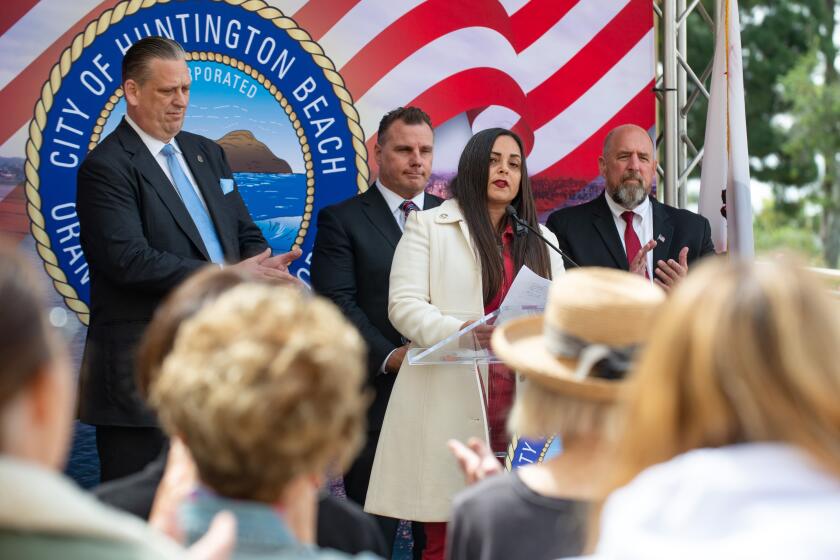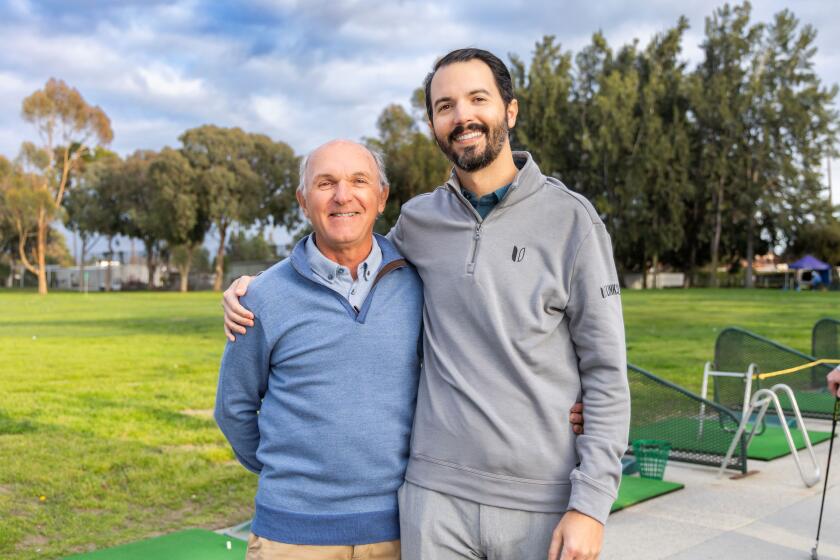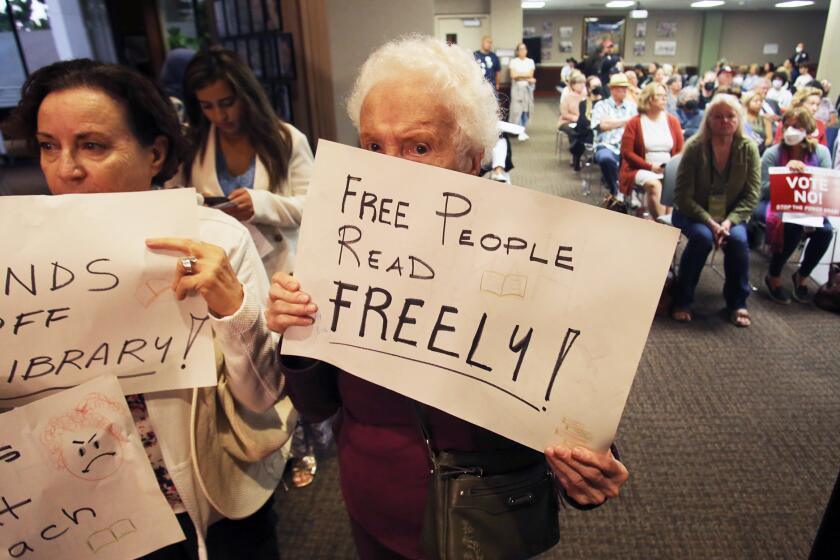City Lights: Mastering the performance of poetry
Last week, I judged a competition where entrants had to have a grabbing lead, a dynamic storytelling style and a wealth of information condensed into a finite number of words.
I’m talking, of course, about Poetry Out Loud.
For the second straight year, I got invited to help preside over the annual event sponsored by the National Endowment for the Arts and the Poetry Foundation, in which high school students dramatically recite poems from memory. Friday afternoon, a dozen students vied at the local competition at the Orange County Department of Education headquarters in Costa Mesa.
Like anyone involved in the poetry scene, not quite the most lucrative of fields, I lead a double life. By day, I work as a mild-mannered journalist, carefully soliciting information from the Planning Commission and Franchise Tax Board and combing reporters’ and columnists’ work for typos.
By evening and on the weekends, I immerse myself in an art form that has no rules of any kind — except, perhaps, that you can’t use the same metaphor twice.
As one who has written two collections of poetry, operated a small publishing house and hosted readings in and out of state, I must say I appreciate the freedom to write a piece without all five Ws — Who, What, When, Where and Why — in the lead.
So back to Poetry Out Loud.
Every year, thousands of ninth- through 12th-graders nationwide compete at the local level, with the winners going on to state and then, if all goes well, to Washington, D.C. The students recite two poems from memory, with one judge grading them on accuracy and the other three rating them on overall performance.
Along with two other veteran Southern California poets, Steve Ramirez and Peggy Dobreer, I served on the three-member panel Friday afternoon.
The 12 students hailed from high schools around the county, but one thing nearly united them: Except for one, all the contestants were female. Apparently the boys at their respective schools think of poetry as a feminine art form, and I encourage their English teachers to arrange a Charles Bukowski unit to jolt their sensibilities.
As it turned out, though, the top prize Friday went to a girl: Ellen Webre, a student at Orange County High School of the Arts, who recited Elizabeth Barrett Browning’s “How Do I Love Thee?” and Edwin Arlington Robinson’s “Miniver Cheevy” in a performance that might have made Meryl Streep envious.
The key word there is “performance.” Poetry Out Loud spotlights works by established poets rather than original work by the students, which means many of the poems are likely familiar to the judges. (Is there anyone who can’t recite at least a few lines of William Blake’s “The Tyger”?) Instead of marveling at similes, then, the judges look for inflection, pacing, body language and interpretive depth.
Ellen, the last performer of the afternoon, mastered all that and more, capturing the naked yearning of Browning’s sonnet and nailing the sardonic humor of Robinson’s parable. She had keen competition, but when the judges tallied their marks, she was the clear choice to head to Sacramento.
Congratulations, Ellen. And if I don’t read your name in the news again, I hope to see it on the open mic list at the Gypsy Den. You can recite any of my poems you like — probably better than I can.
City Editor MICHAEL MILLER can be reached at (714) 966-4617 or at michael.miller@latimes.com.
All the latest on Orange County from Orange County.
Get our free TimesOC newsletter.
You may occasionally receive promotional content from the Daily Pilot.



